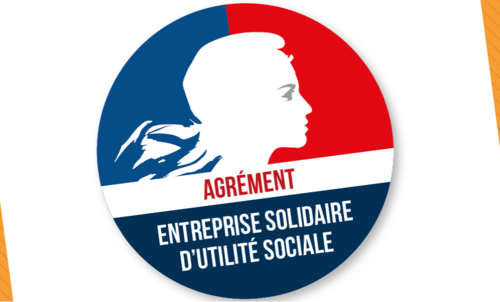Qu’est-ce que l’agrément Entreprise Solidaire d’Utilité Sociale ?
L’agrément ESUS permet aux entreprises et structures de l’ESS (Économie Sociale et Solidaire) de prétendre à des financements privés dédiés, dont la plupart sont issus de la finance solidaire. Les acteurs éligibles ont également accès au dispositif fiscal IR-PME dit « Madelin ».
L’agrément Entreprise Solidaire d’Utilité Sociale, défini par la loi du 31 juillet 2014 sur l’ESS, succède ainsi à l’agrément « Entreprise Solidaire » et représente une véritable porte d’entrée pour les entreprises qui recherchent un accès au financement de l’épargne solidaire.
Comment obtenir l’agrément ESUS ?
Pour obtenir l’agrément ESUS, l’entreprise doit appartenir à l’une de ces 5 catégories de structures :
- Les structures historiques de l’Économie sociale et solidaire (art. L. 3332-17-1-I du Code du travail)
- Les sociétés commerciales
- Les bénéficiaires de plein droit
- Les organismes de financement
- Les établissements de crédit
Chacune de ces catégories est soumise à ses propres critères pour obtenir l’agrément. Par exemple, les structures bénéficiaires de plein droit doivent remplir trois conditions cumulatives :
- Justifier de leur appartenance à la catégorie des « bénéficiaires de plein droit »
- Respecter les conditions prévues par l’article 1-I de la loi relative à l’Économie sociale et solidaire
- Respecter les conditions de l’article L3332-17-1-4° du Code du travail.
La demande d’agrément doit être effectuée par le représentant légal de l’entreprise auprès de la DIRECCTE du département dans lequel se situe son siège social. Cet organisme vérifie d’abord si la société entre ou non dans la catégorie des bénéficiaires de plein droit. Si ce n’est pas le cas, pour les sociétés commerciales, la lecture des statuts permettra de vérifier l’appartenance à l’ESS. Pour les autres, la forme juridique suffit à remplir cette condition.
Une fois obtenu, l’agrément ESUS est valable pour une durée de 5 ans. Son renouvellement nécessite une mise à jour des pièces justificatives (copie des statuts, extrait du registre du commerce et des sociétés, derniers comptes annuels approuvés, comptes de résultats prévisionnels…).
Un agrément désormais plus facile à obtenir
La loi PACTE, promulguée en mai 2019, a amélioré certains aspects de l’agrément Entreprise Solidaire d’Utilité Sociale afin de fluidifier et de dynamiser sa délivrance. Les modifications portent notamment sur la reformulation de la notion d’utilité sociale dans la loi ESS et la simplification des conditions d’éligibilité à l’agrément. La loi prévoit enfin un mécanisme de pré-institution des dossiers par des réseaux d’accompagnement spécialisés. Grâce à ces améliorations, l’agrément ESUS devrait être plus facile à obtenir.
